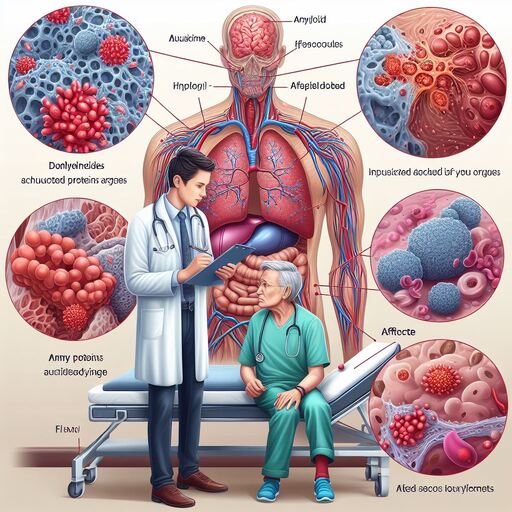Amyloidosis is a group of rare diseases caused by the deposition of abnormal protein deposits, called amyloids, in various parts of the body. These deposits can cause a range of symptoms and organ dysfunction, including kidney failure, liver damage, heart failure, nerve damage, and digestive problems.
There are several different types of amyloidosis, including light chain amyloidosis, heavy chain amyloidosis, transthyretin amyloidosis, and familial amyloidosis with proteinamylin inclusion bodies (FAP). Each type of amyloidosis has its own specific characteristics and treatment options.
The underlying cause of amyloidosis is not fully understood, but it is thought to be related to genetic factors or environmental triggers that disrupt the normal function of proteins involved in protein folding and degradation.
Symptoms of amyloidosis can vary widely depending on the location and severity of the amyloid deposits. In some cases, individuals may have no noticeable symptoms until advanced stages of the disease.
Diagnosis of amyloidosis typically involves a combination of clinical evaluation, laboratory testing, imaging studies, and sometimes biopsy. Treatment options for amyloidosis include chemotherapy, targeted therapies, stem cell transplantation, and supportive care measures such as fluid restriction and nutritional support.
It’s important for individuals with suspected amyloidosis to seek medical attention promptly and work closely with their healthcare provider to develop a comprehensive treatment plan that addresses their specific symptoms and organ dysfunction. With appropriate management, some forms of amyloidosis can be effectively managed and the quality of life improved. However, in more advanced stages of the disease, prognosis may be guarded and supportive care measures may be necessary to manage symptoms and improve overall outcomes.

